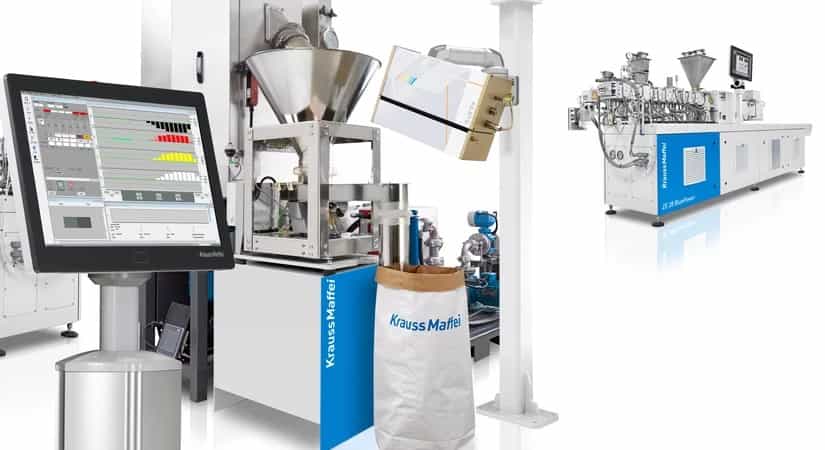Mechanical-recycling – Petrochemicals 24-10-2022 - Arhive
Mechanical-recycling – Petrochemicals
-rPET-Bottle – CPL – Petrochemicals – CPL
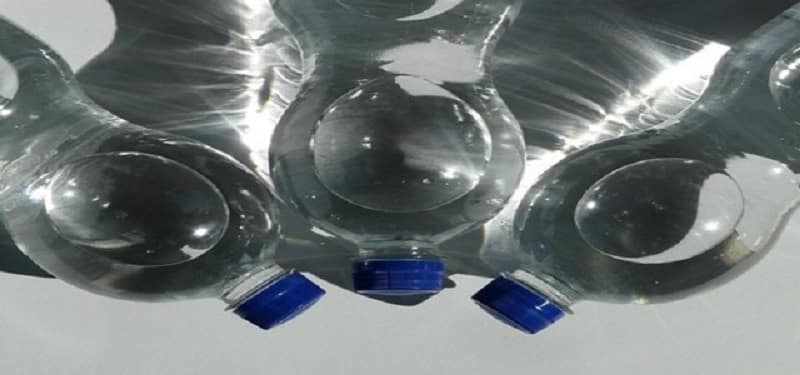
Crude Oil Prices Trend

Crude Oil Prices Trend Polyestertime
- Borealis is taking another important step towards expanding its advanced mechanical recycling capabilities.
- A commercial-scale plant will be operational in 2025, with the capacity to produce over 60 kilotonnes of circular solutions and compounds per year.
- The design of the plant will be based on Borcycle™ M, Borealis’ advanced mechanical recycling technology platform.
- EverMinds™at work: This milestone confirms how innovation & technology continue to drive our transformation to a circular economy.
Borealis is designing a first-of-its-kind commercial-scale advanced mechanical recycling plant to be located in Schwechat, Austria. The plant will be based on Borealis’ own M technology, which transforms polyolefin-based post-consumer waste into high-performance polymers suitable for demanding applications. This represents another tangible step forward on Borealis’ path to net zero.
The new plant will have capacity to produce over 60 kilotonnes of advanced mechanical recycled polyolefin solutions and compounds per year. For customers and end-consumers, this will mean an increase in the availability of high-quality recycled plastic products.
The decision was based on positive feedback from the market on recycled polyolefins delivered by a demonstration plant based on the same technology. This
Mechanical recycling plays a key role in Borealis’ approach to achieving circularity, as shown in the integrated cascade model. The new plant will expand Borealis’ capabilities in this area, following on from the acquisitions of plastic recyclers mtm plastics in 2016, and Ecoplast Kunstoffrecycling in 2018.
The front-end engineering design (FEED) stage for the plant will be carried out by Nextchem, specialists in the field of green chemistry and technologies for the energy transition. Upon successful completion of FEED phase, Borealis expects to take a final investment decision in the second half of 2023 and start construction by the end of 2023. The first volumes of recycled polyolefin products are expected in 2025.
The plant will support Borealis to deliver on its sustainability commitments, which target a supply capacity of 600 kilotonnes of circular products and solutions globally by 2025, further increased to 1.8 million tonnes by 2030.
“With our purpose to reinvent essentials for sustainable living, Borealis is committed to rapidly increasing the share of recycled content across a wide range of high-performance polyolefins. Proof-in-point of the EverMinds mindset, this step demonstrates how innovative technology continues to advance circularity,” says Lucrèce Foufopoulos-DeRidder, Borealis Executive Vice President of Polyolefins, Circular Economy Solutions and Innovation & Technology.
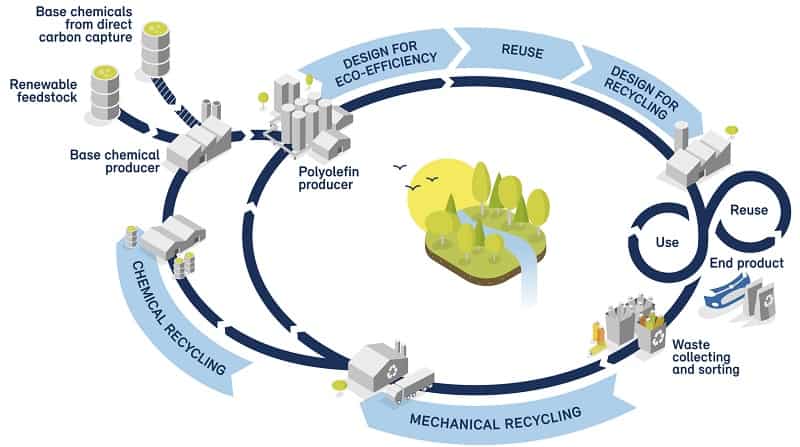
Repaving of 250 km of slow lane begins on the A4 Turin-Milan motorway operated by the ASTM Group
Graphene, recycled hard plastics (such as toys, fruit crates and litter bins) and 70% recycled asphalt will make the new motorway more sustainable and safer, reducing CO2eq emissions by 38.5% and use of new bitumen and aggregates by 40%
An innovative, sustainable, resilient and safe asphalt for the A4 Torino-Milano motorway section, managed by the ASTM Group: it will be made with graphene and specially selected recycled hard plastics (e.g., toys, fruit crates, litter bins) and with the re-use of 70% of milled material from existing pavement, thus reducing the use of new natural aggregates to only 30%. The works will involve both directions for a total of 250 km. The ASTM Group, the world’s second largest operator of motorway networks under concession and a global player in the construction of major infrastructure works, will use Gipave®, an asphalt technology that uses a patented and innovative process completely made in Italy, the result of six years of research conducted by Iterchimica – an Italian company operating in over 90 countries and a leader in the production and development of sustainable asphalt products and technologies – in collaboration with G.Eco (A2A Group), the University of Milan-Bicocca and Directa Plus. The repaving activity will make the A4 motorway the first in Europe to use a green, hi-tech asphalt thanks to the use of graphene and 70% recycled asphalt. This activity is part of the ASTM Group’s wider ‘Smart Roads’ project. The Turin-Milan section, in fact, which links the two main economic and industrial poles in the north-west of the country, was chosen by the Group to represent not only symbolically but also de facto the ASTM vision of the Motorway of the Future. Along the 125 km stretch, many innovative solutions will be implemented with the aim of increasing safety levels, improving the quality of travel for users and protecting the environment. In particular, the use of Gipave’s green and hi-tech technology and 70% recycled asphalt guarantees greater performance in terms of sustainability and resistance, up to a 75% increase in pavement durability compared to the best technologies currently used on the market. To achieve this ambitious goal, the ASTM Group will install a special production plant in a median position with respect to the A4 motorway section to better manage the entire process. Compared to standard maintenance, this solution will reduce energy consumption by about 90 million kWh (-30%), corresponding to the annual needs of about 30,000 households, and will allow the abatement of 18,350,000 kg of CO2eq emissions (38.5% less) equal to the absorption of about 115,000 trees.
Moreover, compared to paving using traditional methods, about 1.5 million kg of hard plastics will be re-used for this activity (equal to the weight of more than 1,200 cars), saving almost 23 million kg of bitumen and about 480 million kg of raw materials extracted from quarries (-40% of non[1]renewable materials used compared to traditional technologies). Umberto Tosoni, ASTM CEO, commented “We will make the Turin-Milan motorway, the artery linking the two main economic and industrial centres in north-west Italy, the most modern, most technological and greenest motorway in Europe. ASTM’s investment in advanced technologies and ongoing commitment to finding sustainable solutions are an integral part of our long-term strategy, which aims to improve the travel experience and quality of service for our customers. We are working on several fronts ranging from the adoption of infrastructure-vehicle communication systems to the introduction of intelligent ‘free flow’ tolling and anti-fog systems, from wrong-direction and dangerous goods detection systems to the introduction of hydrogen filling stations and an increased presence of electric charging stations. With the use of graphene asphalt, we are accelerating the process of ecological and environmental transition of our infrastructures: a project that will contribute, among other things, to the achievement of the Group’s ambitious 2030 greenhouse gas emission reduction targets approved by the Science Based Targets Initiative.” Federica Giannattasio, CEO Iterchimica, declared “After 6 years of research and development and numerous trial sections in Italy and abroad that have demonstrated both the technical and environmental performance of this technology, we are extremely proud to contribute together with the ASTM Group to the resurfacing of the A4 Torino-Milano motorway, which will thus become the first hi-tech, safe and sustainable motorway in Europe. The work is being carried out thanks to Gipave’s patented technology and our know-how, which we have put at ASTM’s disposal to enable the main road link in north-west Italy to achieve this prestigious result. This project, which represents a first step, makes us quite proud and places Italy at the forefront and in line with the ecological transition objectives set out in the UN’s 2030 Agenda. The environmental savings are unprecedented, reaching emission reductions of up to 38.5% compared to traditional maintenance technologies.” In addition to ASTM and Iterchimica, which is supplying the products and its know-how, other companies in the ASTM Group have also actively collaborated in the realisation of this important infrastructure: Itinera, which operates in Italy and worldwide for the construction of large infrastructure projects, will carry out the resurfacing of the A4, and SINA, an engineering company in the highway infrastructure sector, which has designed the production recipe and carried out the asphalt tests. The asphalt producer Bitux will supply the eco-pavement mixes for the pilot project. The sustainability study was carried out by the University of Bologna (Department of Civil, Chemical, Environmental and Materials Engineering).
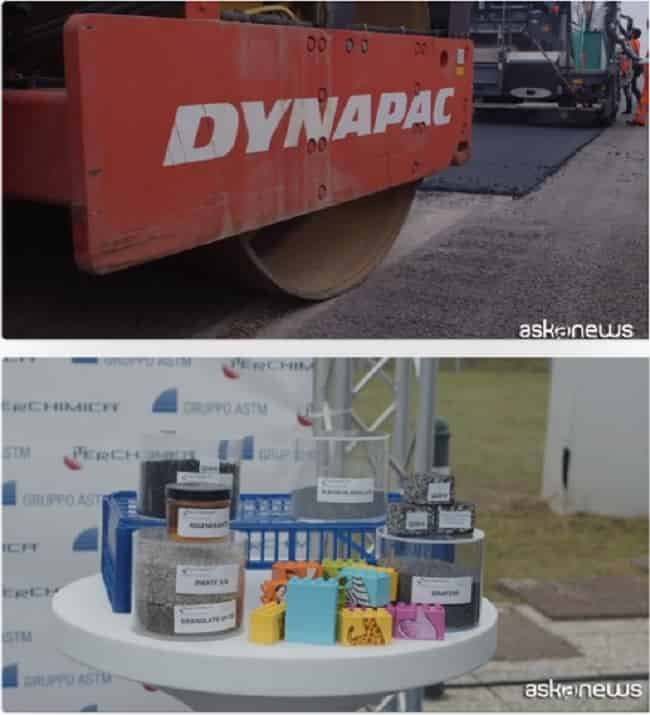
-Industry: Advanced recycling is a solution to plastic crisis
The plastics industry says there is way to help solve the crisis of plastic waste plaguing the planet’s oceans, beaches and lands— recycle it, chemically.
Chemical recycling typically uses heat or chemical solvents to break down plastics into liquid and gas to produce an oil-like mixture or basic chemicals. Industry leaders say that mixture can be made back into plastic pellets to make new products.
“What we are trying to do is really create a circular economy for plastics because we think it is the most viable option for keeping plastic out of the environment,” said Joshua Baca, vice president of the plastics division at the American Chemistry Council, the industry trade association for American chemical companies.
ExxonMobil, New Hope Energy, Nexus Circular, Eastman, Encina and other companies are planning to build large plastics recycling plants. Seven smaller facilities across the United States already recycle plastic into new plastic, according to the ACC. A handful of others convert hard-to-recycle used plastics into alternative transportation fuels for aviation, marine and auto uses.
But environmental groups say advanced recycling is a distraction from real solutions like producing and using less plastic. They suspect the idea of recyclable plastics will enable the steep ramp up in plastic production to continue. And while the amount produced globally grows, recycling rates for plastic waste are abysmally low, especially in the United States.
Plastic packaging, multi-layered films, bags, polystyrene foam and other hard-to-recycle plastic products are piling up in landfills and in the environment, or going to incinerators.
Judith Enck, the founder and president of Beyond Plastics, says plastics recycling doesn’t work and never will. Chemical additives and colorants used to give plastic different properties mean that there are thousands of types, she said. That’s why they can’t be mixed together and recycled in the conventional, mechanical way. Nor is there much of a market for recycled plastic, because virgin plastic is cheap, she said.
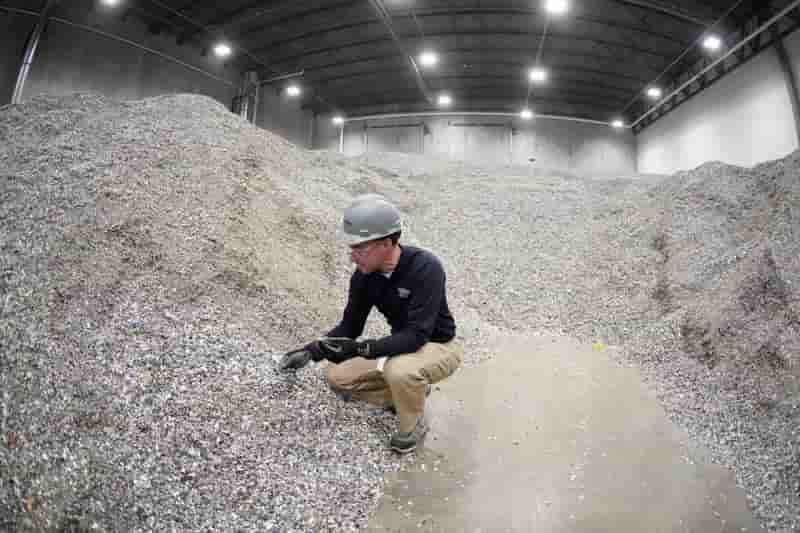
-Clariant announces further investment in new China flame retardants facility
Clariant will create a second production line at its new CHF 60 million state of the art facility for Exolit OP halogen-free flame retardants currently under construction in Daya Bay, China, said the company.
This additional CHF 40 million investment will further expand access to innovative and sustainable fire protection solutions and related technical expertise to support the significant growth of engineering plastics applications in E-mobility and electrical & electronic segments.
“Brands and equipment manufacturers are increasingly switching to non-halogenated flame retardants to meet rising electrification needs and sustainability claims. And we see this in the rapidly growing demand for our Exolit OP flame retardants in China and other Asian markets. Offering local production and the support of technical experts at Daya Bay, alongside the development capabilities at the One Clariant Campus laboratories in Shanghai, will enable us to respond faster to local, regional and global supply needs and also work more closely with our customers to fulfill increasing safety regulations and technical performance requirements in E-mobility, 5G communications, transportation and beyond,” comments Jochen Ahrens, Clariant’s head of flame retardants business.
The new Daya Bay flame retardant plant will supplement the capacity of Clariant’s two Exolit OP plants in Knapsack, Germany and is beneficial to the global customer base. Despite the external challenges of COVID, logistical and supply chain issues, Clariant is still targeting its original timeline, i.e. commencing production in Daya Bay around mid-2023, with the second line due to come on stream within 2024.
Clariant will produce its global range of patent-protected organophosphorus flame retardants on site. The team at the Shanghai One Clariant Campus will support customers in the joint development and in-application testing of flame retarded solutions.
We remind, Clariant has been awarded a major contract by Wanhua Chemical Group to supply catalysts for its new maleic anhydride plant, which will be one of the largest in the world. Designed to produce 200 kilotons of maleic anhydride annually, the plant will rely on Clariant’s SynDane catalyst for the production process. The facility will be located in Yantai city, Shandong province, and is scheduled to commence operation in 2023. Also based in Yantai, Wanhua is one of the largest chemical producers in China and is among the top 30 chemical producers globally by 2020 sales.
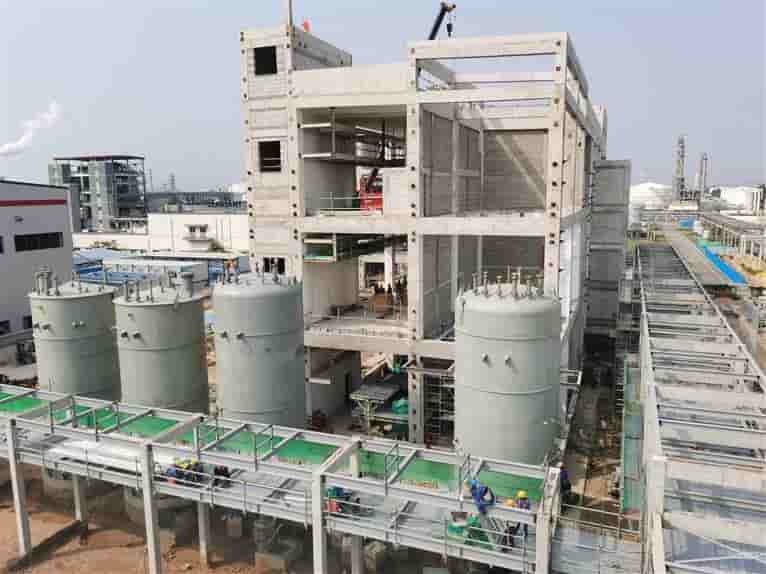
-Sasol, ArcelorMittal form green hydrogen team in S Africa
South African chemicals and energy company Sasol Ltd (JSE:SOL) and steel producer ArcelorMittal South Africa Ltd (JSE:ACL) are taking the first steps to develop local green hydrogen projects.
During the African Energy Week (AEW) conference and exhibition in Cape Town, officials from both sides have signed a memorandum of understanding (MoU) to work together on green energy development and the decarbonisation of the local manufacturing industry, a news release says. The pact outlines plans to undertake a hydrogen feasibility study and pilot projects.
A separate media release by Sasol says the two companies have entered into a joint development agreement (JDA) to advance studies on two specific projects. One of them will focus on exploring the potential of the Saldanha region as a green hydrogen and derivatives export hub and for green steel production.
The other will look into the use of renewable electricity and green hydrogen to convert carbon captured from the Vanderbijlpark Works into sustainable fuels and chemicals. More specifically, the so-called Vaal carbon capture and utilisation (CCU) study will explore the annual use of up to 1.5 million tonnes of unavoidable industrial carbon dioxide (CO2) captured from the particular steel mill. It will be transported to the Sasolburg and Ekandustria operating facilities in Sasolburg for the purpose of replacing natural gas as a feedstock to produce sustainable chemical products with the help of green hydrogen.
The two have also signed a MOU with the Freeport Saldanha Industrial Development Zone to develop a green hydrogen hub and ecosystem within Saldanha Bay.
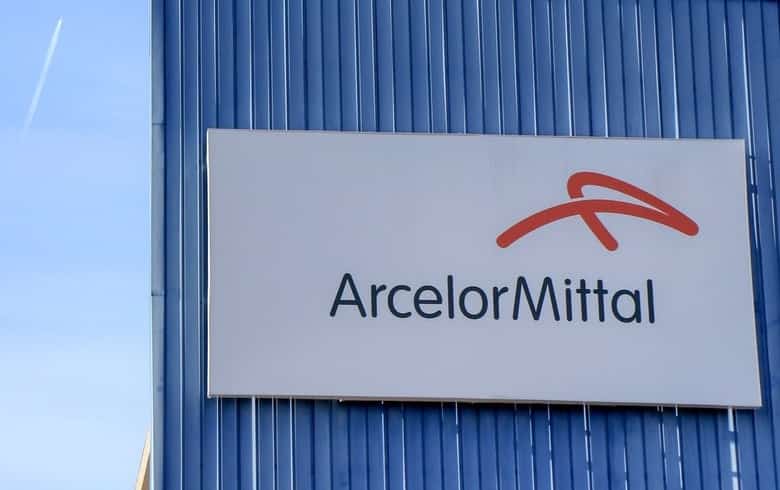
-LatAm seen to reach 34 GW of offshore wind by 2050, driven by hydrogen
Offshore wind turbines. Featured Image: Teun van den Dries/Shutterstock.com
October 21 (Renewables Now) – Latin America will have 34 GW of offshore wind capacity by 2050, with development propelled by off-grid green hydrogen projects, Wood Mackenzie has projected.
The region is expected to switch on its first offshore wind farm in 2032 and then experience a 15.4% compound annual growth rate by the middle of the century, led by Brazil and Colombia.
“We have seen significant regulatory movement in support of offshore wind developments, with Brazil and Colombia providing official roadmaps and guidelines for future activity,” Wood Mackenzie research analyst Karys Prado said in a news release this week.
According to the research firm, Brazil will account for almost 6% of global green hydrogen supply through 2050 and the majority of green hydrogen facilities in the country will be off-grid, supported by offshore wind and other renewables.
“This will play a key role in the country’s future economy and long-term position as a global energy exporter,” said Prado.
Wood Mackenzie says that there are still many challenges in front of the industry but the opportunity is there.
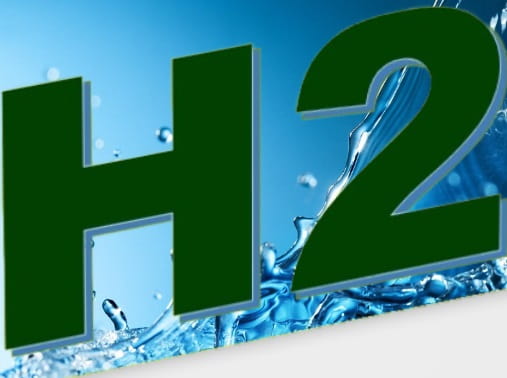
-K 2022: KraussMaffei positions itself as a sustainable innovation driver
- Additive Manufacturing presented as fourth technology
- Sustainability moves to the heart of the strategy
- Principal owner Sinochem supports the alignment of KraussMaffei
Under the motto ” MAKE PLASTIC GREEN. WITH HIGHEST QUALITY AND EFFICIENCY.”, KraussMaffei is presenting numerous innovations at the K trade show. The 184-year-old mechanical engineering company is thus underpinning its claim as a leading supplier of sustainable solutions and innovation driver for the plastics industry.
For the first time, KraussMaffei is exhibiting large-scale 3D printing systems for industrial use at the K trade show. Additive Manufacturing will now complement the existing product portfolio (Injection Molding, Extrusion and Reaction Process Machinery) as a fourth pillar. In addition, visitors to the booth will be able to experience a complete Circular Economy cycle in which the quality of the recycled plastic is retained. KraussMaffei will also be presenting new mid-market solutions and innovative digital services which help to minimize downtimes and reduce CO2 emissions.
“Sustainability and innovation are two mega topics of our industry. They are therefore at the heart of our corporate and product strategy. We are making plastic green with maximum efficiency and quality,” says the CEO of KraussMaffei, Dr. Michael Ruf. “We want to be a one-stop solution provider for our customers in all aspects of plastics processing, just as they have known KraussMaffei for many years. With our consulting, our products and our service, we want to make them fit for a successful, efficient, digital and, above all, sustainable future. To do this, they need innovative and holistic solutions across the entire product life cycle. We will be showing that complete package at this important trade show.”
Principal shareholder supports strategy
Fanrong Li, Chairman of KraussMaffei principal owner Sinochem, adds: “KraussMaffei, with a long historical and leading advantage in the field of plastic machinery, is a very important component of Sinochem’s portfolio. We are firmly convinced that it can create greater value for the industry, leading to further growth in the medium to long term. The Asian market, and China in particular, offer many opportunities which we will tackle together as a group. We fully support KraussMaffei’s strategy and vision of shaping the company into one of the leading international solution providers in the field of plastics processing machinery.”
KraussMaffei focuses on Additive Manufacturing on a large scale
At the K trade show, the new KraussMaffei continues to take shape. With the Additive Manufacturing machines now being presented, large, complex plastic components as well as small parts with the highest demands on surface quality and with detailed resolution can be printed in high volumes. Customers benefit from low total unit costs (“cost per part”).
The machines are supplied as complete solutions that guarantee absolute process stability and part quality. They do not require expensive test prints (“first time right”), which enables customers to achieve significant material and cost savings. “Additive Manufacturing ideally complements our existing portfolio. Thanks to our extensive expertise in materials and manufacturing processes, we are able to produce highly efficient 3D printers that offer our customers great added value from day one,” says CEO Dr. Michael Ruf.
In addition, KraussMaffei is positioning itself at the trade fair as an important pioneer of the Circular Economy (CE) in the plastics industry. A complete CE cycle will be on display, in which a high-quality automotive part is produced from recyclate.
